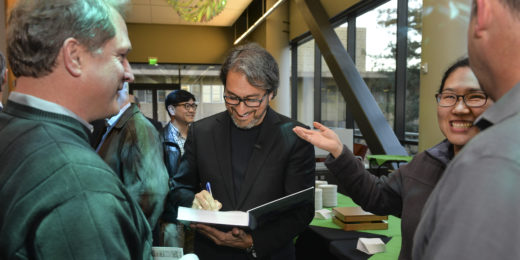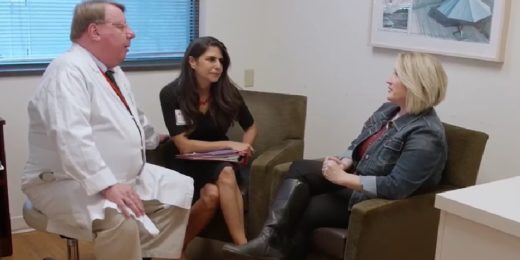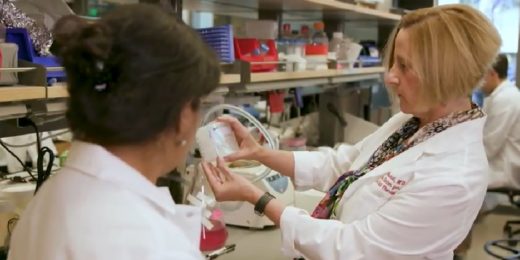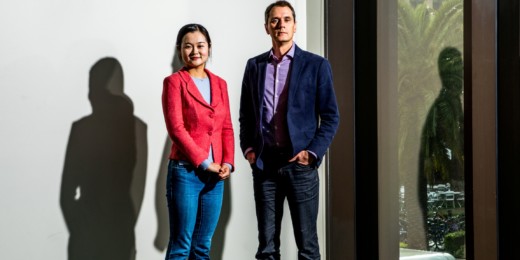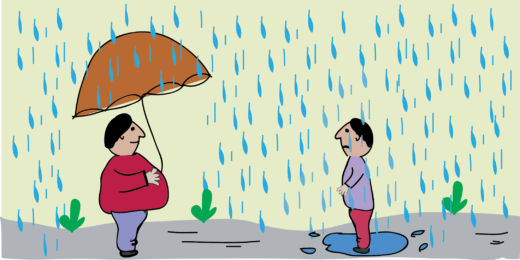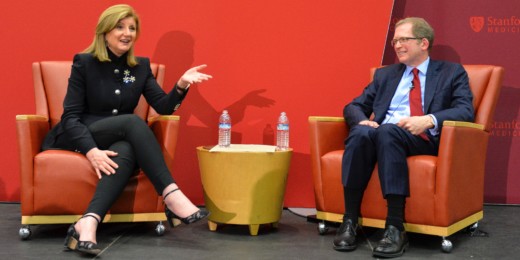Serial health technology entrepreneur Josh Makower described his work developing devices that make medical procedures better for patients by seeking to "help the body do what it would want to do on its own."
Month: March 2018
Mindfulness and emotional awareness can improve your work experience, Stanford researcher says
Paying attention to your emotions at work can improve your job experience and performance, says mindfulness expert Leah Weiss.
Common link — a glucose-guzzling immune cell — involved in coronary artery disease and rheumatoid arthritis
Rheumatoid arthritis and coronary artery disease share a common culprit: an important type of immune cell, called a macrophage, that has gone haywire. Stanford investigators have zeroed in on a molecular defect in macrophages' metabolic process that drives both disorders.
Learning from health-related social media posts: A Q&A
Stanford physician Sidhartha Sinha analyzes social media posts using machine learning to better understand patient and societal perceptions on medical interventions and illnesses.
Understanding male breast cancer
Breast cancer in men and women differ in levels of cancer-associated gene expression and the relative risk of recurrence after initially successful treatment. Some men have a higher risk than women, whereas others have a much lower risk.
Design thinking helps Innovative Health Care Leader program participants tackle tough challenges
Professors Abraham Verghese, PhD, and Sarah Soule, PhD, will lead this spring's Innovative Health Care Leader: From DesignThinking to Personal Leadership program.
In Uganda, women with heart disease shown to take great risks to have a family
Thousands of women in the East African country of Uganda suffer from rheumatic heart disease. Although pregnancy can lead to severe complications, a new study shows that many women are putting their health at risk in order to have children.
Taking the training wheels off on the road to becoming a “real doctor”
When working in a clinic as a medical student, there’s a balance between “learning from the support we have available, and relying on it too much.” So writes Stanford fourth-year medical student Nathaniel Fleming.
Helping families assess their hereditary cancer risk
Stanford’s Cancer Genetics Program helps assess families' hereditary cancer risks and guide patients to make informed choices about prevention and treatment.
Heart patient energized by valve replacement without open surgery
A minimally-invasive procedure called TAVR "gave me back my life in an immediate and profound way," said Stanford high-risk heart patient Laura Hosking.
Why does CAR-T cancer therapy give this Stanford oncologist hope? Watch this video
According to Stanford pediatric oncologist Crystal Mackall, a pediatric oncologist with Stanford Children's Health, immunotherapy with CAR T cells is more precise, more specific and just as potent a treatment for leukemia as chemotherapy.
Stanford gun violence research highlighted in national dialogue
A group of researchers are trying to answer the question: Are you more or less likely to die if you own a firearm? Their work was recently featured in the Washington Post.
It’s time to abandon the term “obesity paradox,” Stanford researchers say
Scientists argue that using the term "obesity paradox" to describe situations in which obese patients have unexpectedly better health outcomes is actually a disservice to scientific advancement.
Countdown to Childx: What doctors can do to improve health literacy
Health literacy means doctors explaining health care tasks - such as giving a child medication - in doable steps that don’t make you feel like you’re overwhelmed, says health-literacy expert Ruth Parker, a guest at next month's Childx conference.
Put well-being first, Arianna Huffington urges Stanford Medicine community
Using data and storytelling, Arianna Huffington is working encourage a cultural shift toward health and wellness, she explained at a conversation with Dean Lloyd Minor on campus.
Procedure helps young girl suffering from seizure disorder
Lucile Packard Children's Hospital Stanford is the only hospital in Northern California using the innovative ROSA™ technology to help children suffering from prolific seizure disorders.


